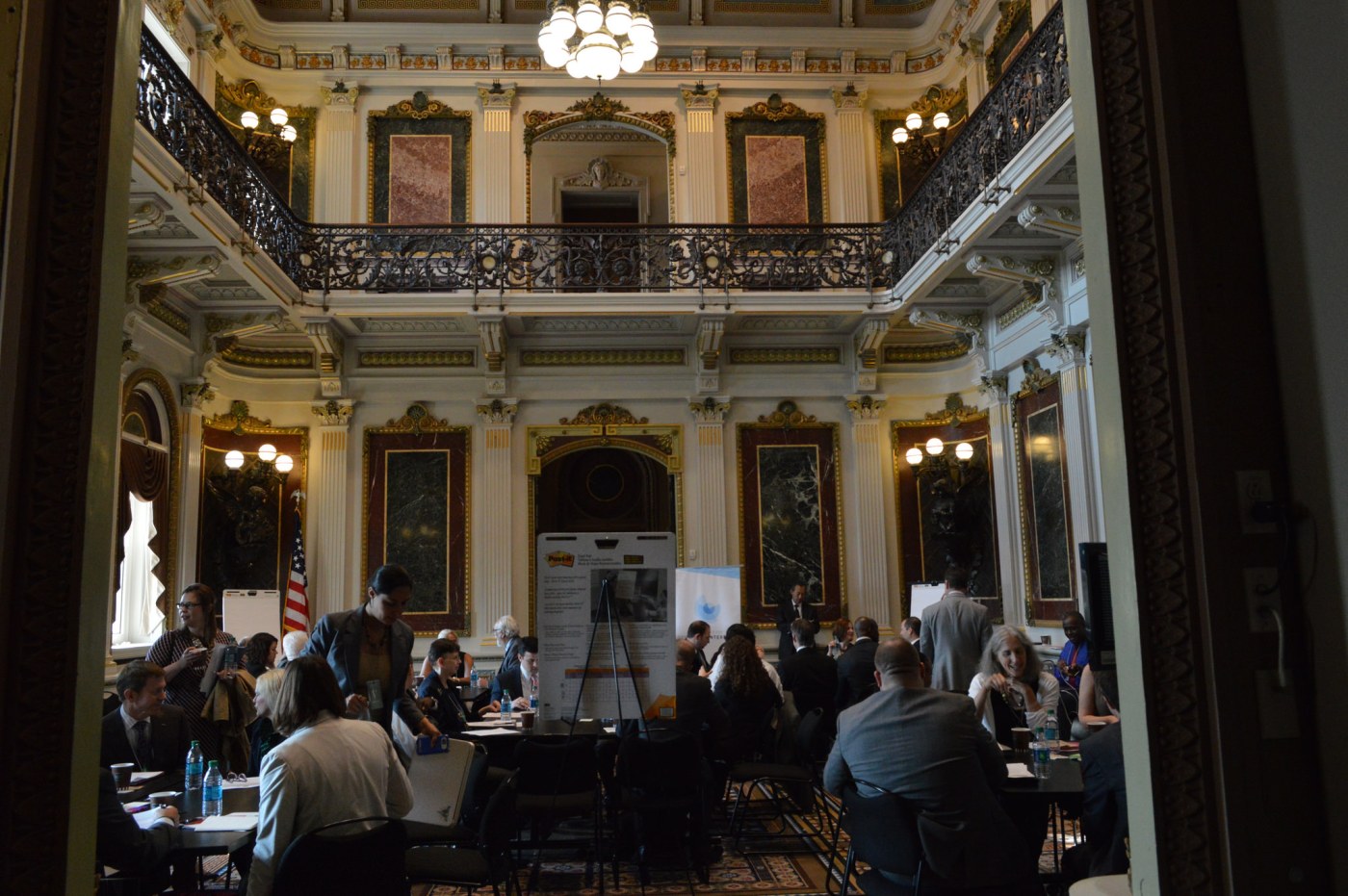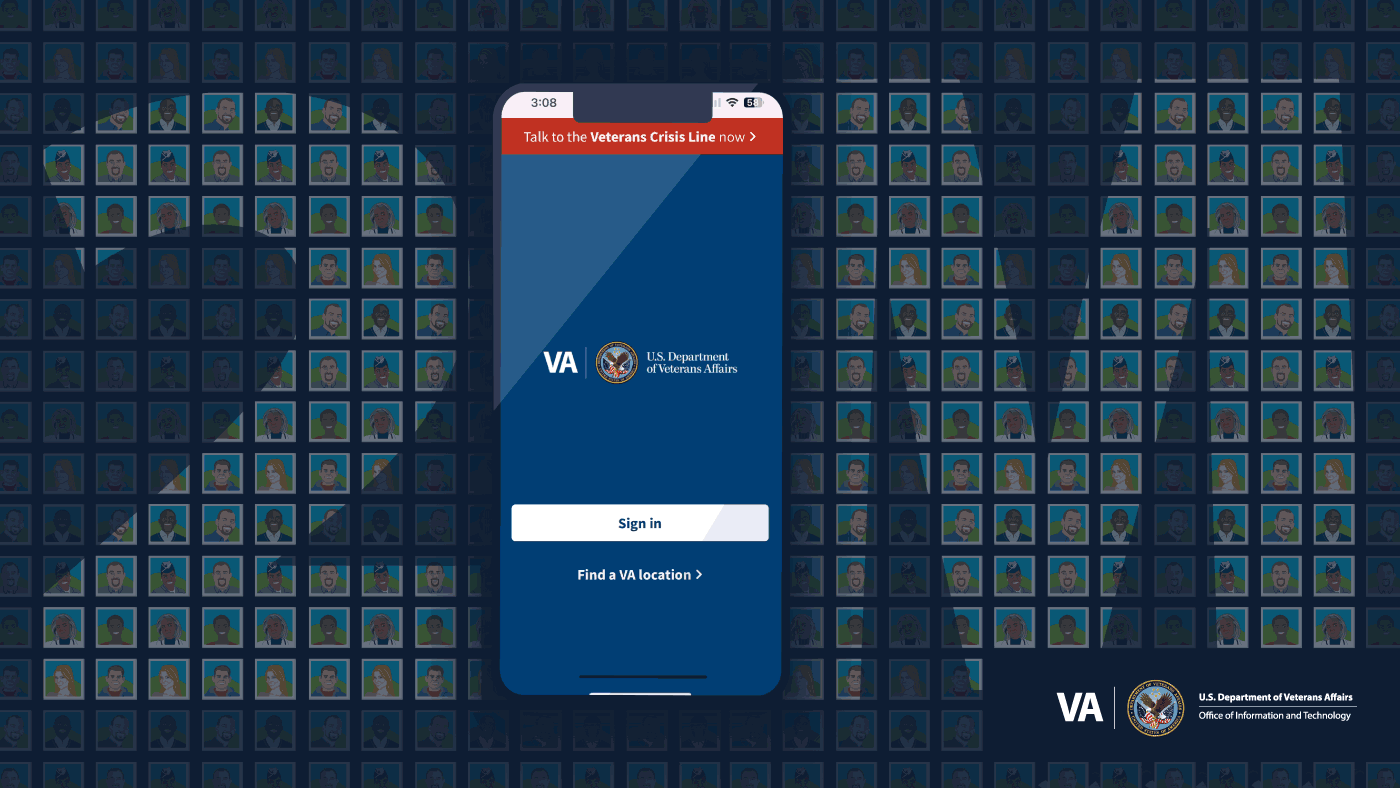Open data from government – free data, accessible online, that anyone can use and reuse – is being recognized as a major public resource. Under the Open Data Policy, government agencies are releasing more and more valuable datasets, fueling collaboration across the public and private sectors. The increase in open data about the diverse Veteran population available on sites like www.va.gov/data, Data.gov and VA’s National Center for Veterans Analysis and Statistics is an opportunity to inform VA employees and millions of civilians about the demographics, motivations and experiences of this population. The implementation of a customer-driven environment can facilitate the analysis of systems causing appointment waitlists or the disability claims backlog, help design optimal employment resources for Veterans or craft effective medical interventions.

These discussions centered around three high-level themes:
- Continuous engagement with stakeholders for optimal and efficient prioritization
- Furthering a culture of open data
- Authoritative and integrated data management processes and systems
This roundtable was a unique opportunity for the VA’s data providers and data users to work together. They focused on a common goal: to maximize the value of VA’s data and further the agency’s mission to support Veterans and their advocates. The roundtable was the first time VA employees at all levels discussed the potential of open data with external users, including thought-leaders from the White House, Veteran service organizations, other federal agencies, non-profits, academia and research institutions.
The day began with an introduction by Dat Tran, VA’s Principal Deputy Assistant Secretary for Policy and Planning, who discussed the vision and strategy of the customer data integration initiative across all agency business lines, encompassing all services which Veterans and their supporters access throughout their lifetime.
To frame the day’s activities with multiple perspectives, the roundtable included lightning talks from Jack Bates, director of VA’s Business Intelligence Service Line, and Phil Carter, senior fellow, counsel and director of the Military, Veterans, and Society Program at the Center for a New American Security. Bates provided a demonstration of VA’s Wait List Facility Portal, a public-facing tool empowering users to schedule their own appointments based on type and urgency of medical need and their location. The portal provides much requested transparency into the health care access process. Carter, a Veteran himself, spoke about insights his team generates leveraging public Veteran-related data, as well as the gaps and opportunities for the government to effectively address the needs of the Veteran community.
Many of the top technology leaders in the federal government delivered keynote talks. Megan Smith, U.S. Chief Technology Officer, described the diverse efforts to make entrepreneurship and tech accessible to all, highlighting organizations like The Bunker, which empowers Veterans to be entrepreneurs by providing access to educational resources, training and mentors. Dr. D.J. Patil, U.S. Chief Data Scientist in the Office of Science and Technology Policy, discussed how employment data can help identify military skills Veterans can leverage in the civilian job market. Erie Meyer of the U.S. Digital Service, who participated as a moderator throughout the event, spoke about transforming opportunities into action and the resources available to assist with implementation. Ryan Panchadsaram, Deputy Chief Technology Officer, helped close the event, and spoke about open healthcare data and the power of transparency.
This roundtable was the first in a series of collaborative forums to develop an agency-wide data strategy that informs decision-making and long-term priorities. “Analytics Powering Outcomes for Veterans,” a customer-centered analytics event, provided VA employees and users of Vet-related data with another outlet to contribute analytical strategies and identify shared goals between VA administrations, and across the public and private sectors. This united effort will assist the agency in creating a holistic picture of Veterans that informs the design of products and services, and empowers employees at all levels to contribute valuably, enabling real-time analysis at the local level.
This effort will enable VA to become an analytically-empowered organization that effectively identifies and meets the needs of our customers: Veterans and their supporters. Supporters are other Veterans, their families, researchers, developers, clinicians, entrepreneurs — anyone strategizing how to leverage information to improve VA’s products and services, bettering lives.
VA will leverage momentum and commitment from the events to identify key opportunities that address these challenges, expanding on proposed solutions that engage data users. We are excited to partner with diverse entities to share knowledge, explore the changing landscape of open data and analytics, develop the skills necessary for success, and understand how to optimize data.

Topics in this story
More Stories
The VA Health and Benefits mobile app is modernizing how Veterans access and manage their health care and benefits information.
Learn how you can guard your VA online health information against scammers and online threats when using My HealtheVet or VA apps.
VA has added a seamless online ordering system for CPAP supplies in addition to hearing aids, enhancing how Veterans access and manage crucial supplies, making the process more accessible and efficient.







Data transparency,to boost integrity HMMMM. Instead of plastering my data all over VA’s own version of Facebook, I feel that it is time to have some transparency in the upper echelons of the Dept of VETERANS Affairs! Still trying to be positive, but the “executives” are still stealing & lying, the politicians are only worried about getting re-elected, & most Americans don’t know what to do! Thankfully, WE have each other! WHEN the time comes, America’s Veterans will do what our country trained us to do! We took care of business before, AND JUST THINK …
most of us are CRAZY AS HELL NOW!! LET’S DANCE !